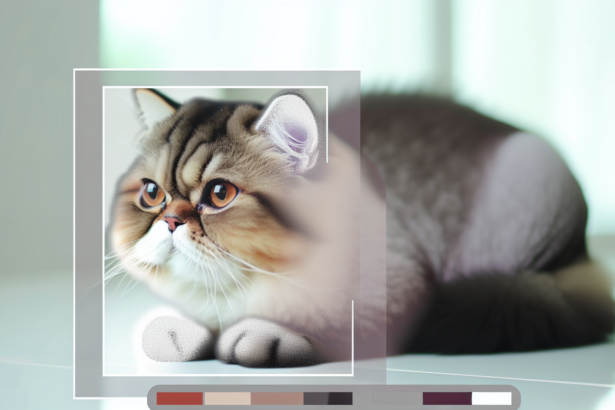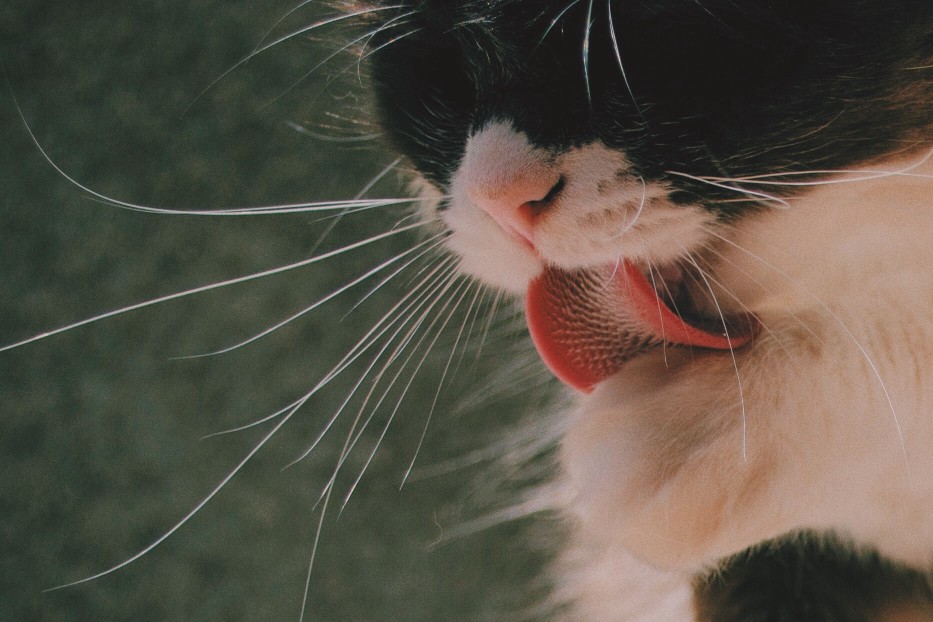Introduction
Why cats are afraid of water is a question every feline owner has asked themselves at least once. You’re probably familiar with this scenario: as soon as you turn on the tap, your cat takes off at a speed worthy of an Olympic sprinter! But rest assured, you’re not alone. Today, we’re going to unravel the mystery of this strange aquatic aversion and learn to better understand our adorable mustachioed companions.
- Introduction
- Why cats are afraid of water: understanding their natural instinct
- The ancestral origins of cats’ fear of water
- The role of fur in cats’ fear of water
- The importance of the senses in cats’ aversion to water
- Exceptions to the rule: cats who love water
- Some cat breeds are particularly fond of water
- The influence of education and environment on a cat’s relationship with water
- Curious cats: when interest outweighs fear
- How to help your cat overcome its fear of water
- Gradually getting your cat used to water
- Choosing the right accessories to reassure your cat
- Creating a safe bathing environment
- Mistakes to avoid with a cat afraid of water
- Conclusion
- FAQ : Why are cats afraid of water?
Why cats are afraid of water: understanding their natural instinct
The ancestral origins of cats’ fear of water
Our domestic felines are descended from wild cats that lived in dry regions far from waterways. In those days, water represented a potential danger: hidden predators, the risk of drowning… In short, anything but fun! This instinctive distrust has been passed down from generation to generation, which explains why your tomcat prefers to keep his paws dry.
The role of fur in cats’ fear of water
Ever seen a wet cat? It’s not very glorious, let’s face it! Their coats quickly absorb water, becoming heavy and uncomfortable. As a result, their legendary agility is compromised, leaving them vulnerable to danger. What’s more, wet fur prevents them from properly regulating their body temperature, causing them to flee from any suspicious drop of water.
The importance of the senses in cats’ aversion to water
Cats are ultra-sensitive creatures. Their highly developed sense of smell is disturbed by the unusual odors of water and bath products. The sound of running water can also cause stress and anxiety in some felines. Not to mention their delicate paw pads, which often find the sensation of hot or cold water particularly unpleasant.
Exceptions to the rule: cats who love water
Some cat breeds are particularly fond of water
Yes, some cats love water! This is particularly true of the Bengal, the Maine Coon and the Van Turk. These breeds evolved in environments where water was a natural part of their daily lives. Their specific coats are more resistant to humidity and dry quickly, enabling them to enjoy the pleasures of the water to the full.
The influence of education and environment on a cat’s relationship with water
Did you know that early exposure to water can positively influence your cat’s relationship with this element? A pleasant experience from an early age greatly facilitates acceptance. Your behavior and habits also play a key role: if you’re calm and reassuring, your cat will tend to accept baths more readily.
Curious cats: when interest outweighs fear
Some cats are real adventurers! Their natural curiosity can sometimes overcome their instinct to be wary. You’ve probably caught them exploring the sink or playing with a puddle. These intrepid felines prove that every cat is unique and that their relationship with water can vary considerably.
How to help your cat overcome its fear of water
Gradually getting your cat used to water
Here’s an original and effective tip: start by lightly moistening a soft sponge and stroking your cat with it, while offering him a treat. Gradually increase the amount of water as you observe his comfort. This gentle method allows your feline to associate water with a positive experience.
Choosing the right accessories to reassure your cat
- Use a non-slip mat to prevent slipping.
- Choose a gentle spray rather than a powerful one.
- Choose shampoos specifically adapted to cats, without strong odors.
Creating a safe bathing environment
Prepare everything in advance to limit bathing time, and talk gently to your cat throughout the process. Dry him immediately with a soft towel to avoid discomfort. Your calm and gentleness will make all the difference!
Mistakes to avoid with a cat afraid of water
Never force your cat into the water
A common mistake to avoid is forcing your cat into the water. This risks creating lasting trauma and aggravating his fear. Always respect your pet’s rhythm and be patient to build a relationship of trust.
Avoid frequent bathing
Cats are naturally clean and don’t usually need regular bathing. Excessive bathing can irritate their delicate skin and cause unnecessary stress. Reserve bathing for exceptional situations, such as heavy soiling or the presence of parasites.
Avoid sudden gestures and shouting
Sudden movements and shouting will only increase your cat’s anxiety. Instead, gentle stroking and encouragement will soothe your feline and create a relaxed atmosphere during the bath.
Conclusion
Now you know the secret behind why cats are afraid of water! By better understanding your companion, you’ll be able to help him overcome his fears and strengthen your bond. For more tips and advice on the fascinating behavior of cats, read on at Pawtounes.fr!
FAQ : Why are cats afraid of water?
Why does my cat hate water so much?
This is mainly due to its ancestral instinct, the sensitivity of its senses and the discomfort caused by wet fur.
Are there any cat breeds that like water?
Yes, some breeds like the Bengal, Maine Coon or Van Turk are particularly fond of water.
How can I get my cat used to water without stressing him?
Get him used to it gradually, use suitable accessories and create a reassuring environment by remaining calm and gentle.
Do I absolutely have to bathe my cat regularly?
No, cats are naturally clean. Limit bathing to exceptional situations such as heavy soiling or parasites.






